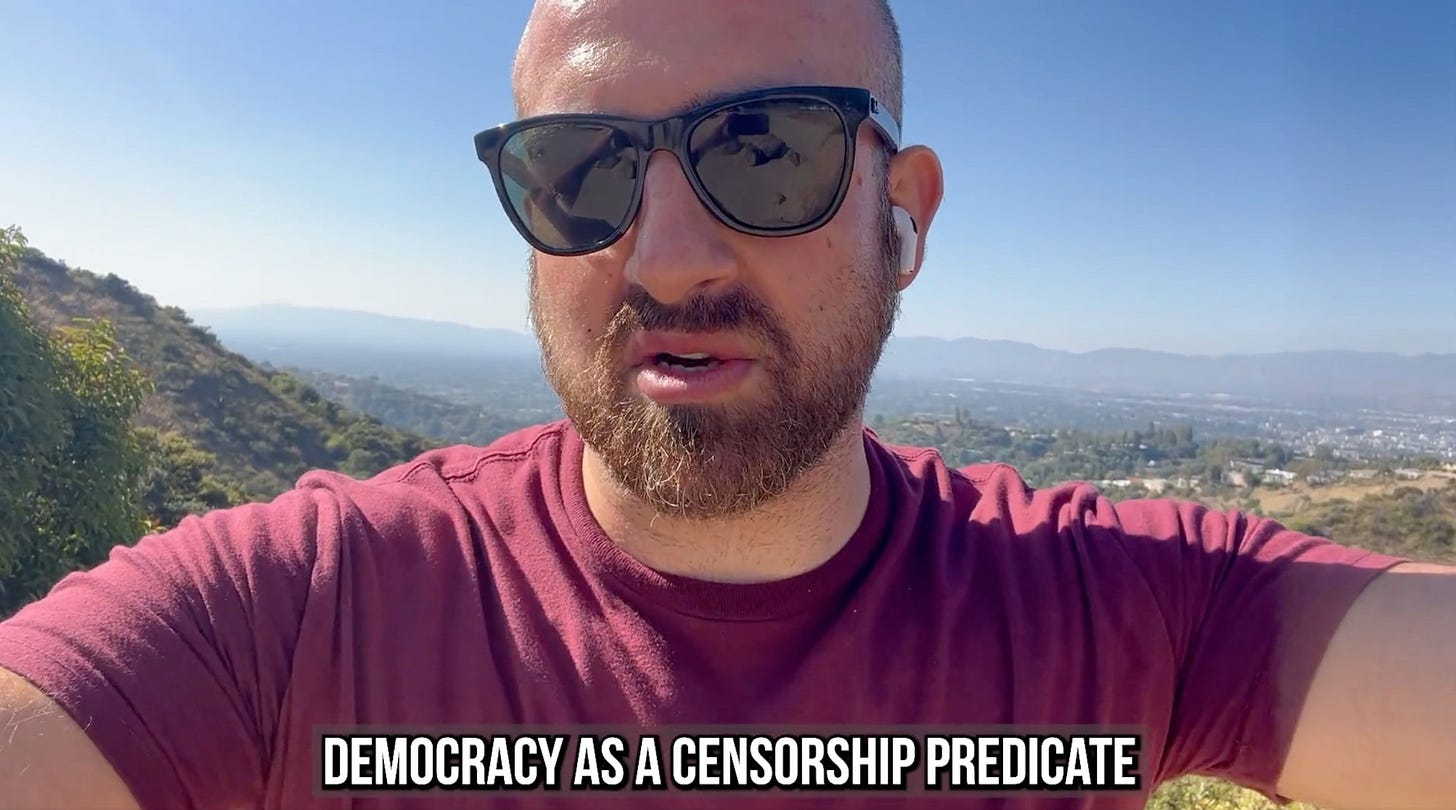Decoding Propaganda Terminology
An ongoing series exposing the true meanings behind some of the most widely used terminology in the political and cultural discourse.
To better understand politics and culture, we first have to understand how language is often employed for propaganda. That is what this Decoding Propaganda Terminology series is meant to do.
Disclaimer: I’m sharing many of these terms as I learn about them in real-time.
(If you’d like to contribute, drop your suggestions in the comments section.)
OUR DEMOCRACY:
Commonplace Definition:
“Democracy” is a system of government by the whole population or all the eligible members of a state, typically through elected representatives. Essentially, it is the control of an organization or group by the majority of its members. The individuals, in this case, are empowered to have a voice and a say on particular societal matters.
Decoded Definition:
“Democracy” or “Our Democracy” is a term newly operationalized to refer to the governance by the consensus of institutions rather than by the consensus of individuals (i.e. the governed). Simply put, it is the empowerment of institutions to the detriment of individuals. (See explainer video below.)
So, essentially, if you advocate for free speech, or your voting rights, or believe that specific institutions readily censor opposition or rig elections, based on this decoded definition, you would be viewed as a “threat to democracy.”
As Mike Benz, executive director at the Foundation for Freedom Online, puts it in plain terms:
“Having a consensus of institutions be your definition of democracy means that if there is a consensus of individuals that overturns or overrules or tries to resist the consensus of institutions, then those individuals—that majority of the population—are actually attacking democracy. It’s a ‘threat to democracy’ if individuals vote against institutions.”
This is why in recent years, across corporate news media, we’ve repetitively heard various forms of the refrain “this is a threat to our democracy,” or “this is an attack on our democracy,” or “this is extremely dangerous to our democracy,” signaling that the consensus of individuals on particular issues are in direct opposition to the consensus of institutions such as the State Department, the Department of Defense, the Intelligence Community, NGOs, the Democratic National Committee, the Republican National Committee, and many others throughout society.
Quick Explainer:

See The Term In Use:





I had the exact same comment! 'Our democracy' often serves as a synonym for the rules-based order, which is essentially the technocratization of society. It stands at the threshold of a totalitarian state. In Europe and Canada, which lean towards more socialist policies, steps have already been taken with CNBC, Agenda2030, and the widespread censorship of 'disinformation' under the guise of 'combating hate speech and protecting children from online abuse', among other measures. My sole advice is to hold onto your amendments as dearly as life itself, because from my perspective, they currently stand as the sole barrier against being consumed by those very institutions.
To understand technocratization masquerading as benevolence, I recommend watching the video featured in my brief article on European censorship.
https://www.coddledchildren.com/p/prebunking-with-ursula-von-der-leyen?r=3tt74u
Your definition isn’t even right. In a democracy, every single person who’s a registered daughter would vote on every single issue before the Congress. We are representative democracy or at least intended. We have zero legitimacy you’re correct in your assumption about the institution and how wrong it is but that’s totally on we the people